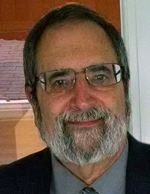The Big Shorts
By Laurie Baron

SAN DIEGO ─ This Sunday and Monday San Diego temporarily will become the world capital of short films. At the same time the Landmark Ken Theatre is showcasing the Oscar-nominated animated and live action short films, the San Diego Jewish Film Festival will be screening the Ma’aleh School of Film, Television, and Arts Student Short Films at the Edwards San Marcos Stadium on Sunday,Feb. 7, and the Joyce Forum Day of Jewish Short Films at the ArcLight Cinemas in La Jolla on Monday, Feb. 8
Since I have not seen all these films, I can’t provide an overview of all of them. Instead, I want to draw attention to two of them: Ave Maria directed by Palestinian filmmaker Basil Khalil which is my favorite to win the Oscar and is also part of the Joyce Forum, and Don Hertzfeldt’s World of Tomorrow which I predict will garner the Oscar for best animated short.
Ave Maria humorously depicts how Palestinian Carmelite nuns who have taken a vow of silence assist an Orthodox Israeli settler, his wife, and mother in returning home on Shabbat after the latter’s car has crashed into a convent. To do so, the nuns and the Israelis must violate ritual prohibitions to transcend their mutual suspicions. Or to cite Khalil’s summation of his film’s message: “They help each other not because they’ve become friends but because they can’t stand each other. And the only way they can get rid of each other is by helping the other. The nuns want to go back to their silence and the Israelis to their Kosher home.”
There is a darker subtext to this otherwise comical short. The nuns are cloistered away from the ongoing conflict in the West Bank. The Israeli man epitomizes the domineering swagger that exacerbates tensions in daily encounters with Palestinians. He carries a gun, takes a shortcut down an Arab road, and perceives himself in mortal danger when confronted by the sisters. Although Khalil recognizes that Israelis and Palestinians choose to imprison themselves within their ethnic and religious identities, he observes, “There is no cooperation when you’re under occupation and one is the occupier. You don’t meet on the same level.”
Don Hertzfeldt may not be a household name, but he has emerged as one of the most creative and award winning animators of the past 15 years. His simple figures composed of lines, triangles, and circles resemble the paintings of Juan Miro and Wassily Kandinsky. In World of Tomorrow a third generation clone visits the young girl whose memories have been uploaded and transferred to a succession of clones bearing the name Emily.
She foretells the original Emily of a future where immortality is achieved by those wealthy enough to afford the cloning process. They retrieve the memories of their progenitors’ and every historical event on the neural matrix that forms the Outernet. Conversely, the poor must settle for an inferior afterlife of having their faces transplanted on robots or for probable death from an unperfected system of time travel. Those fortunate enough to persist as clones on the Outernet find their recollections of being truly alive are devoid of emotional substance and personal relationships. Cognizant that the end of the earth is imminent from a comet hurling toward it, the Emily clone advises the vibrant Emily Prime to appreciate the joy of her childhood by remarking, “Now is the envy of all the dead.”
Hertzfeldt brilliantly conveys this serious meditation on income inequality and the dehumanizing dependence on technology with a minimalist animation style and the contrasting of the passionless adult voice of Emily the clone and the ebullient childish one of Emily Prime.
The two films I’ve reviewed here are but a tiny sampling of the wondrous and thoughtful short films that await your viewing at the Ken and the San Diego Jewish Film Festival in the coming week.
*
Baron is a professor emeritus of history at San Diego State University. He may be contacted at lawrence.baron@sdjewishworld.com, or you may comment on this website provided the rules below are observed.